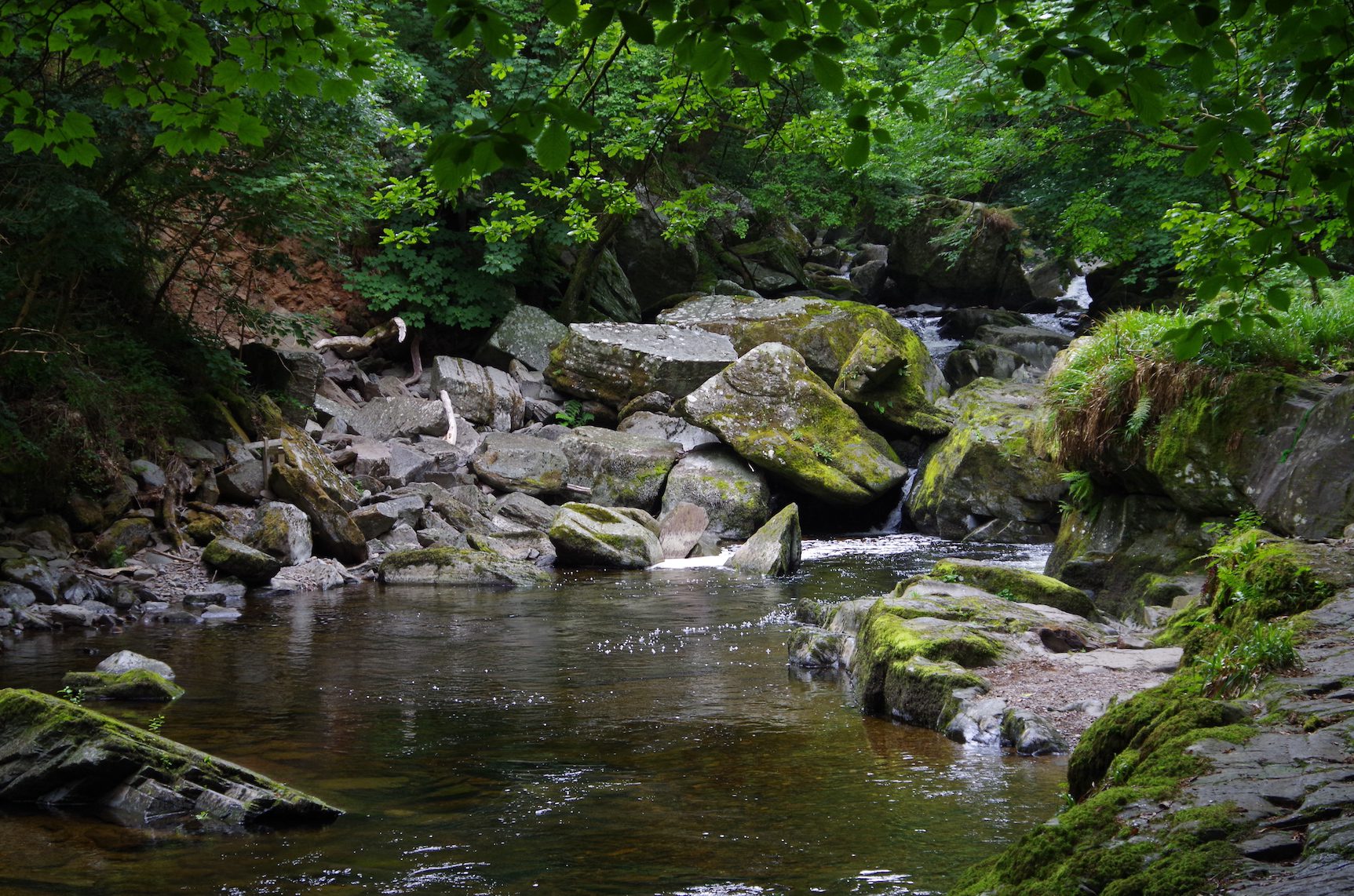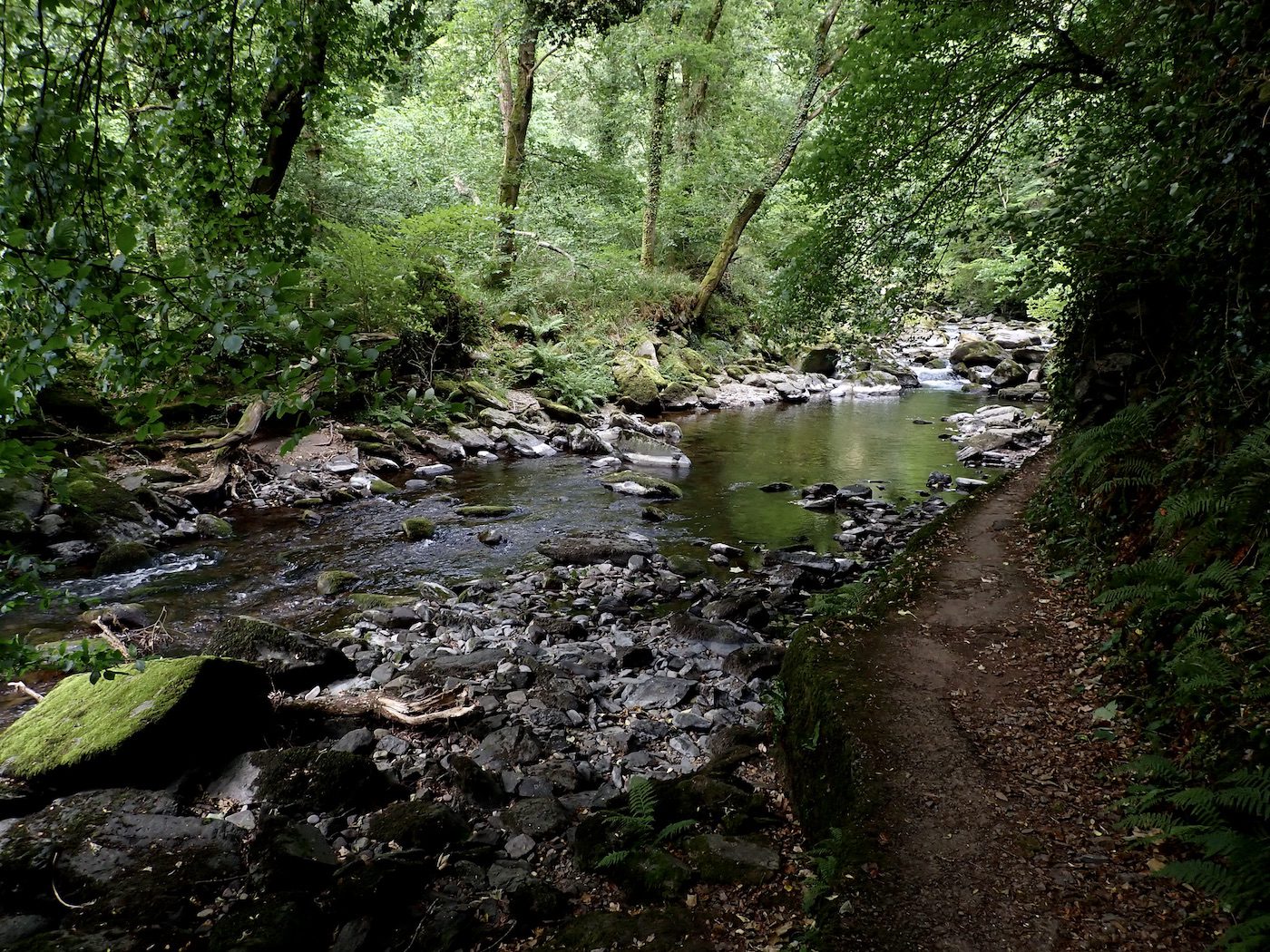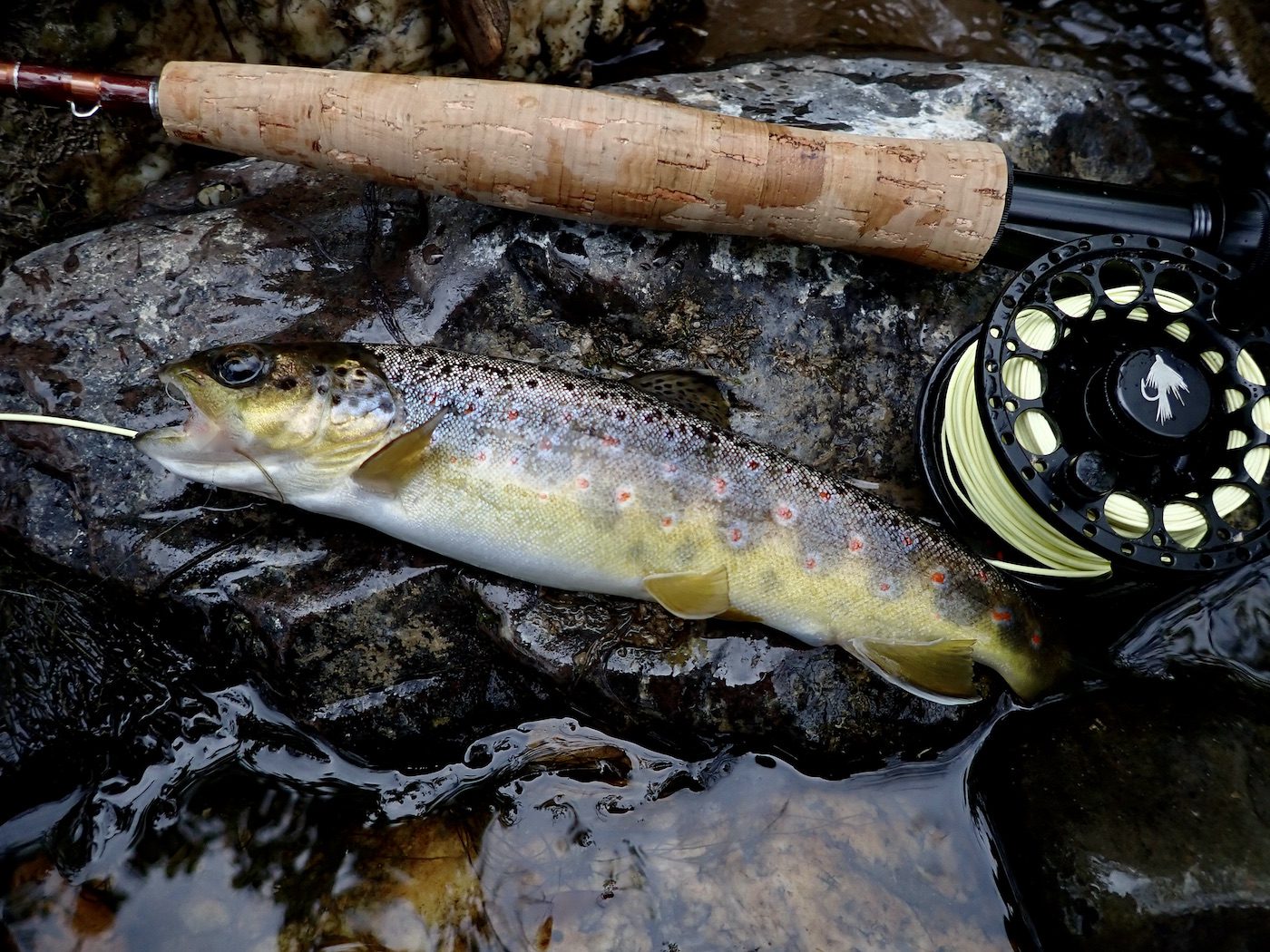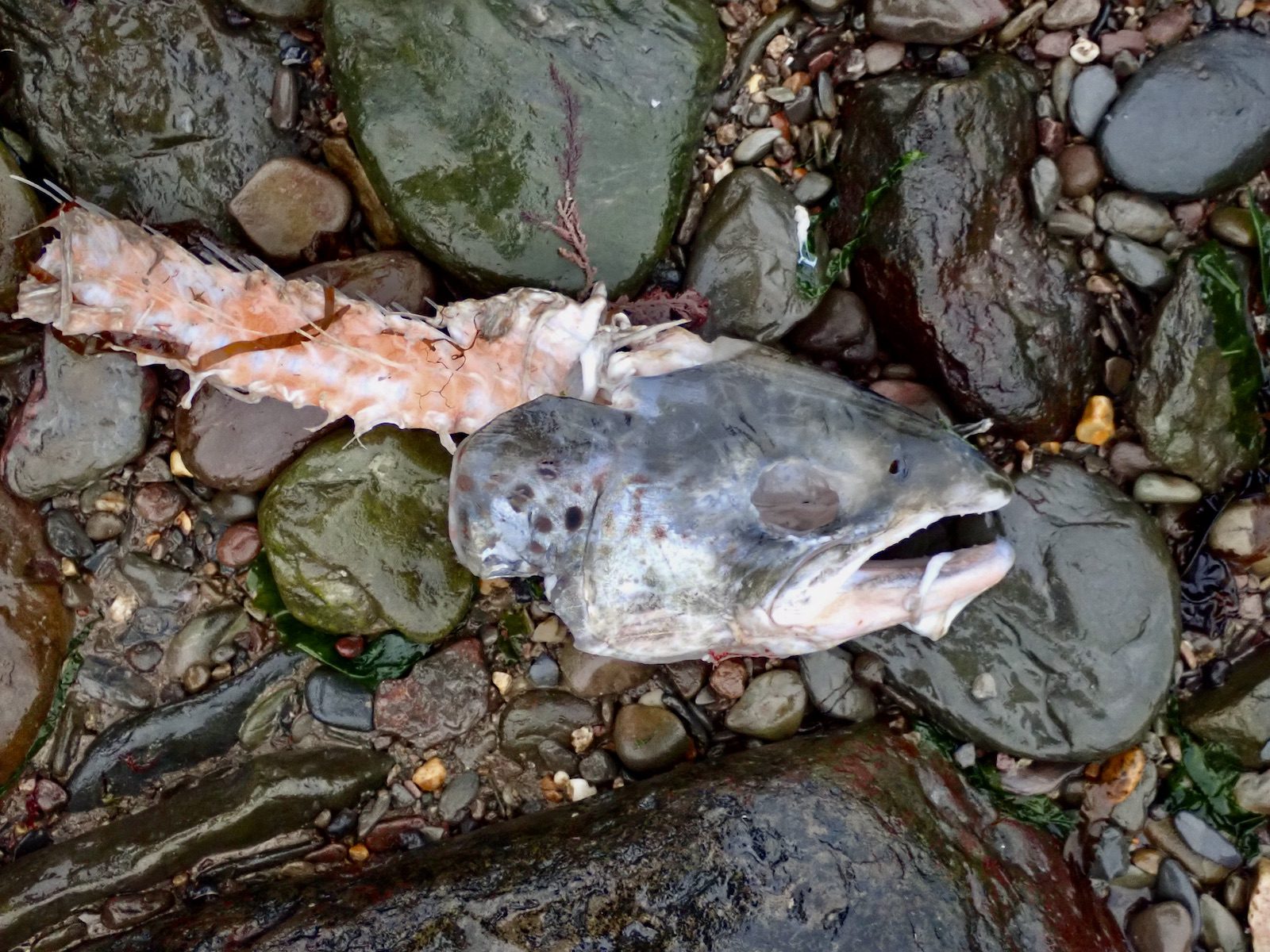I recieved an email from a reader of North Devon Angling News and have published it here with my reply. Darren’s email mirrors many of my own observations and thoughts on the River and its decline. Many thanks to Darren for giving me permission to publish along with my reply.

Hi Wayne,
I chanced upon the NDAN website and indeed your book “I Caught a Glimpse” this year – excellent reading and nice to see a website so regularly updated.
https://thelittleegretpress.co.uk/product/i-caught-a-glimpse-ltd-edition-hardback/
Both from reading your book and old articles on the website it’s interesting to see the change in target species over the last few decades. We read about the reasons put forward and they seem to be many and varied. It set my mind running on a couple of points of local relevance.
The East Lyn is indeed a beautiful river and, although I wasn’t lucky enough to experience it, I’m sure it’s days of plenty live long in the memories of those who did. But why the drastic decline – with the salmon run a shadow of its former glory and I doubt it’s fished much at all for sea trout nowadays. You wonder what the culprits are. We can’t blame fish farming – the Severn is mercifully free from that industry which seems to have blighted the west coast of Scotland. The twin evils of pollution from farms (pesticide and fertilisers) and sewage discharge from treatment plants can’t be an important factor in that catchment can they ? The brown trout population seems to be relatively healthy so the environment for parr developing to the smolt stage would seem to be good. I’m my limited walks along the river and along the coast looking out to sea I don’t see the preponderance of fishing eating birds and seals I’ve seen elsewhere.
If I’m right in that unscientific guesswork it makes you wonder what’s going on out at sea. I suppose the salmon could be caught in large numbers at or en route back from their feeding grounds (like they used to be with drift nets on my native river Foyle). But surely not the sea trout which, as I understand it, doesn’t travel large distances and feeds around the coast. I’ve no doubt the bait fish such as sandeels, whitebait, etc. are hoovered up in huge quantities which could affect dependant species (although the bass seem to get by).
You do wonder if rising sea temperatures have had a pernicious impact. The reports of cod and whiting seem to have been replaced by smooth hound, bull huss and black bream but I wonder if it’s had am impact upon some part of the life cycle of the migratory fish as well.
Something else that seems unusual to me is the differing behaviour of sea trout in the estuaries. I cut my teeth in the mid eighties catching sea trout with frozen sandeels freelined in the ebbing and flowing tides in the narrow points of estuaries on the Donegal coast. The great times on that have gone now but its still worth a throw. What I wonder about is why sea trout were not caught more regularly on bait and lures in the estuaries of sea trout rivers such as the Teign and the Taw. I’ve fished those estuaries quite a few times over the last 25 years but haven’t seen a sea trout taken. I can’t work out why. Perhaps you’ve seen many caught.
Anyway – I just thought I’d drop you an e-mail to congratulate you on the book and thank you for the helpful website. My head scratching re the East Lyn and seatrout behaviour at just thrown out there in case you happen to know the definite answer !
All the Best
Darren

Hi Darren,
Thank you for your email it is really good to get positive feedback regarding my book and the website.
Would you mind if I publish your email on North Devon Angling News with my own thoughts as set out below.
As regards the East Lyn many of your comments mirror my own thoughts.
There has undoubtedly been a dramatic decline in salmon and sea trout runs on the East Lyn and the vast majority of West Country Rivers.
I have witnessed the decline on the Lyn first hand and it has to be appreciated that the decline that I have seen is based upon just over forty years and that my own baseline would have been much depleted in comparison to an angler who had seen the fish that ran the river forty years prior to that.
The facts on the Lyn and other rivers are to some extent blurred by a reduction in angling since the introduction of catch and release. In the days of prolific salmon runs there were also large numbers of anglers fishing the river. The angling community that once fished the Lyn came from far and wide when conditions were right and I met many anglers on the river who had commuted from London and other areas. These were familiar faces who joined the locals on the river bank jostling for the best spots. I often walk the river and now I seldom see a salmon angler even when conditions are good. Last week I spotted a good fish of 9lb plus resting in Overflow pool and feel sure there would have been other fish present.
Like you I do not believe the River Lyn has significant issues regarding pollution, Water Quality or indeed salmon farming.

It is likely that the most serious issue is loss at sea. These factors could relate to the marine eco systems that are in turmoil as a result of climate change, overfishing and an imbalance in predation.
Climate change also impacts upon the spawning of salmon and survival with many scientists predicting that water temperature will be too high for salmonoid species to successfully spawn within the next forty years. Others predict the virtual extinction of salmon within the next twenty years.
One regular angler on the river tells me that otters are decimating the remaining salmon stocks on the Lyn and I have heard of many otter sightings on the river. During drought conditions there are often seals around the river mouth feasting upon salmon, bass and mullet. The juvenile salmon ( smolts) are also heavily predated upon by cormorants that lurk in the river mouth particularly during the spring months.
Another major factor that impacted massively on salmon numbers was UDN during the 1960, 70s and 80s. There was also a recent outbreak of disease that resulted in a large loss of spring run fish.
The reasons for the decline in salmon stocks are undoubtedly complex and I see little reason for optimism though nature has a habit of bouncing back if given a chance. Everything we can do might help, reporting pollution, working with River Trusts and highlighting the decline of an iconic species. It is tragic that the salmon stocks on the Lyn were once so prolific that they could be harvested by anglers and via the salmon trap at the mouth of the river. For many years stocks seemed to be abundant and seemed to bounce back from UDN and natural weather patterns etc.
Across the natural world there has been a catastrophic decline and salmon are just another indicator that all is not well with our world.
As regards to sea trout I have never understood why they are not caught on a regular basis in West Country estuaries. They are as you say caught in Scotland, Ireland, the Hebrides and across Sweden etc.
Best Regards,
Wayne

Later this Autumn Medlar press are publishing a book that promises to deliver more information and thoughts on the history of Exmoors Rivers.
https://www.medlarpress.com/code/bookshop?store-page=Song-of-the-Streams-p547451092

I REMEMBER WHEN
The old guy said,
I remember when the salmon poured into the pools,
Packed like sardines you could have walked across their backs, (1983)
I remember when some anglers caught one hundred salmon in a season, (2003)
It’s been a better season we caught forty from the river last year, (2023)
I remember when there were salmon in the river, (2043)
I remember being told there were once salmon in this river, (2063)

